Words Matter: Destigmatizing the Language of Medicine (ADIEM and the Social EM and Population Health Interest Group Sponsored)
How often does your EHR have the words “addict,” “non-compliant,” or “aggressive”? Stigmatizing language has the power to cause harm, dehumanize, invalidate experiences, and introduce bias into the care of our patients that can be detrimental indefinitely. The provision of high quality, inclusive, equitable care requires the eradication of stigmatizing language throughout our practice – in our communication on shift, didactics and teachings, medical records, and research. However, most practicing EM physicians and EM learners have not received any training regarding the importance of avoiding stigmatizing language in the medical record. In this didactic, we will review the current research regarding how stigmatizing language from health care providers contributes to mistrust and poor outcomes. Experienced EM physicians (educators and researchers) from diverse settings will discuss current options and best practices for bringing training on de-stigmatizing the language of medicine to your ED, colleagues, or residency program.
Participants will receive the tools needed to incorporate the principles of inclusive language into their current practice, teaching, and research. Leaders in this field will review the state of current education and research and help participants design trainings for their settings - for medical students, residents, and faculty.
This didactic is appropriate for medical students, residents, and faculty who wish to ensure that their words, via documentation, EHRs, and discussions with colleagues, do not perpetuate stigma and worsen disparities in health outcomes. Participants will leave with the tools to teach their colleagues and learners about this important issue. This didactic has been sponsored by ADIEM and the Social EM and Population Health interest Group.
Presenters:
- Natalie Strokes, DO, MS
- Meta Carroll, MD
- Rose B. Diaz, MD
- Edgardo Ordonez, MD, MPH
- Aaryn K. Hammond, MD
- Mary E. McLean, MD FACEP FAAEM
- Shannon A. Markus, MD MPH
- Alden M. Landry, MD MPH
- Marcia A. Perry, MD
- Ryan E. Tsuchida, MD
- Lizzie Maxwell Hovis, MD
- Richard W. Sapp, MD MS
-

Natalie Strokes, DO, MS
UMass Chan-Baystate
Dr. Natalie Strokes is a current Health Equity Fellow and Instructor in Emergency Medicine at UMass Chan-Baystate in Western Massachusetts. She received her medical degree at A.T. Still University - School of Osteopathic Medicine in Arizona and is currently pursuing her Master of Public Health degree at the University of Massachusetts. She completed her Emergency Medicine Residency at UMass Chan-Baystate before becoming the inaugural Health Equity Fellow in the department at Baystate. She enjoys introducing the concept of health equity and how it can be incorporated into patient care through education of medical students and residents. Her interests include trauma informed care, harm reduction in substance use disorders, health equity dashboards, developing educational materials with an equity-focused lens and violence intervention. One of her many passions in medicine includes global health and she has been fortunate to participate in sustainable medical care around the world including southern India, Rwanda, Haiti and Tanzania. She currently serves on the Board of Directors for Massachusetts College of Emergency Physicians (MACEP) and is the chair of MACEP’s health equity committee.
-
Meta Carroll, MD
Northwestern University Feinberg School of Medicine & Ann & Robert H. Lurie Children's Hospital of Chicago
Dr. Carroll is a pediatric emergency physician providing clinical service in the emergency departments of Lurie Children's Hospital of Chicago and Northwestern Medicine/Central DuPage Hospital, and bedside and didactic teaching for emergency medicine, family medicine, and pediatric residents, and pediatric emergency medicine fellows. An invited speaker at local, regional, and national meetings, she has lectured on challenging case management of ill and injured pediatric patients, cognitive bias in medical decision making, pediatric ethical issues in the ED, and caring for vulnerable populations. She completed a two-year program in clinical bioethics through Northwestern Feinberg School of Medicine and developed an ethics curriculum for PEM fellows in training. She served as the ABEM representative to the pediatric emergency medicine subboard, tasked with the creation of certifying and recertifying board exams, and as a part of a Practice Analysis Panel that revised the content outline for pediatric emergency medicine. She was the guest editor for the Clinical Pediatric Emergency Medicine issue (March 2019) that focused on the care of the adolescent in the ED. She currently serves on the American Academy of Pediatrics' PREP E-Med editorial board, creating and editing content for high-stakes exam preparation and continuing education. She presented at the 2023 FemInPEM conference on grief-informed care of families in the emergency department.
-

Rose B. Diaz, MD
UCLA
Rose Diaz is a former IDHEAL fellow in Social Emergency Medicine and current faculty at UCLA. She started her professional life as a kindergarten teacher where she taught young children for over 10 years. Driven by a desire to help underserved communities, Rose eventually transitioned to medicine to fulfill her lifelong dream of becoming a physician with a goal of serving as a community health advocate for vulnerable populations. Rose attended medical school at UC Davis and completed her residency training at University of Michigan. She is currently an Assistant Professor of Health Sciences in the Department of Emergency Medicine at UCLA, and Clinical Assistant Professor in the Department of Internal Medicine at Charles Drew University. Her research interests include reducing health disparities in the Emergency Department, improving the recruitment and retention of underrepresented minorities in medicine, and strengthening ties between providers and their surrounding communities.
-
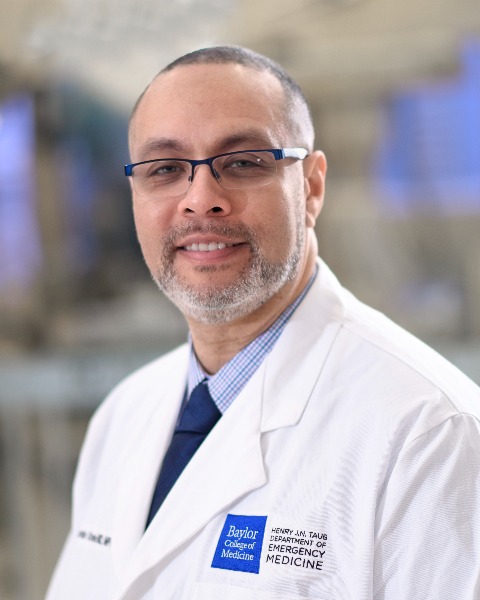
Edgardo Ordonez, MD, MPH
Baylor College of Medicine
Dr. Ordoñez is an Associate Professor of Emergency and Internal Medicine at Baylor College of Medicine (BCM). He received his medical and public health degrees from Rutgers-New Jersey Medical School and School of Public Health. He completed a combined emergency and internal medicine residency at Christiana Care in Newark, Delaware. Dr. Ordoñez has been an Inclusion and Equity Ambassador at BCM since 2016. His advanced training includes being a Center of Excellence in Health Equity, Research, and Training Junior Faculty Scholar from 2019-2020 and a fellow in the inaugural Accreditation Council of Graduate Medical Education (ACGME) DEI Leadership Fellowship in 2022. He was also a participant in the Institute for Healthcare Improvement (IHI) Leadership for Health Equity Program. He is the Director of Health Equity and Community Engagement for the Henry JN Taub Department of Emergency Medicine and the Health Equity Curriculum Thread Director for BCM’s School of Medicine. Nationally, he serves as Immediate Past President of the Society of Academic Emergency Medicine’s (SAEM) Academy for Diversity and Inclusion in Emergency Medicine, the SAEM Equity & Inclusion Committee, the American College of Emergency Physicians (ACEP) Diversity, Equity and Inclusion Committee, and the Council of Residency Director’s in Emergency Medicine (CORD) Diversity and Inclusion Committee. His interests include workforce diversity, equity and inclusion in the workplace, healthcare delivery, health equity, social determinants of health, and mentorship.
-

Aaryn K. Hammond, MD
Wake Forest University School of Medicine
Dr. Aaryn Hammond is an assistant professor of emergency medicine at Atrium Health Wake Forest Baptist Medical Center where she also serves as the assistant medical director for the Adult Emergency Department.
Dr. Aaryn Hammond completed medical school at Morehouse School of Medicine and went on to complete emergency medicine residency at Johns Hopkins were she obtained focused advanced specialty training in the science of health care delivery. She is passionate about reducing health care disparities and improving health equity through the optimization of clinical operations with particular interest in the impact of substance use disorders, housing instability and racial and cultural inequity. -

Mary E. McLean, MD, FACEP, FAAEM
AdventHealth East Orlando
Mary McLean is an Assistant Residency Director for the AdventHealth East Orlando EM Residency Program, and an Adjunct Clinical Associate Professor of Emergency and Internal Medicine for the Lake Erie College of Osteopathic Medicine. She originally hails from Portland, Oregon, and completed her medical education at Oregon Health & Science University School of Medicine and St. John’s Riverside Hospital Emergency Medicine Residency Program. Her professional interests include medical education, research, scholarly activity, public speaking, leadership and advocacy, bias, and diversity, equity, and inclusion. She has spoken nationally and internationally on the medical management of cardiac, neurologic, OB/GYN, neurologic, and traumatic emergencies, as well as on medical education and career development topics. Outside of work, she enjoys documentaries, animals, travel, and being a foodie.
-
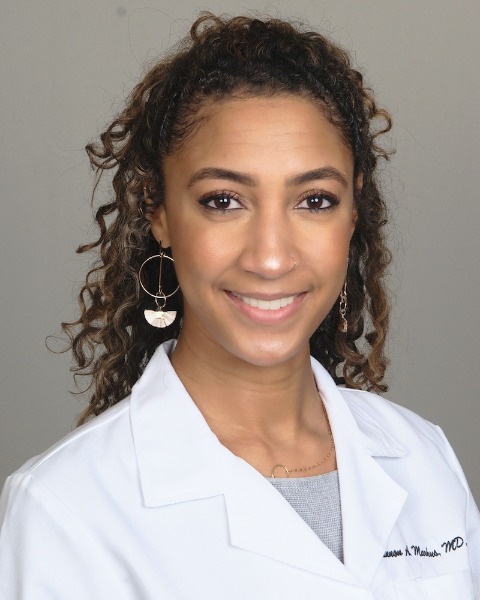
Shannon A. Markus, MD MPH
University of Texas, Austin
Shannon Markus, MD, MPH is an Assistant Professor of Emergency Medicine at Dell Medical School in Austin, Texas, where she recently served as Associate Medical Director. She received her Bachelor's degree from The University of Texas at Austin before attending medical school at Perelman Medical School at the University of Pennsylvania. She earned her Master of Public Health degree at The University of Texas Health Science Center with a focus on leadership before moving to Nashville to complete a residency in Emergency Medicine at Vanderbilt. At Vanderbilt, Dr. Markus served as the inaugural Fellow in Health Policy and Equity, during which time she co-created a GME-wide Resident Interdisciplinary Elective in Health Equity and performed postdoctoral research in health disparities in the COVID pandemic. Her academic interests include policies that affect our most vulnerable populations, including reducing barriers to care, care for the uninsured and underinsured, protection of safety-net institutions, and studying how sociodemographic factors affect health outcomes. She is passionate about mentoring URM students and residents. Dr. Markus enjoys international travel, caring for her 100+ houseplants, camping, and cooking. She is married to Reid and has four fur-babies at home.
-
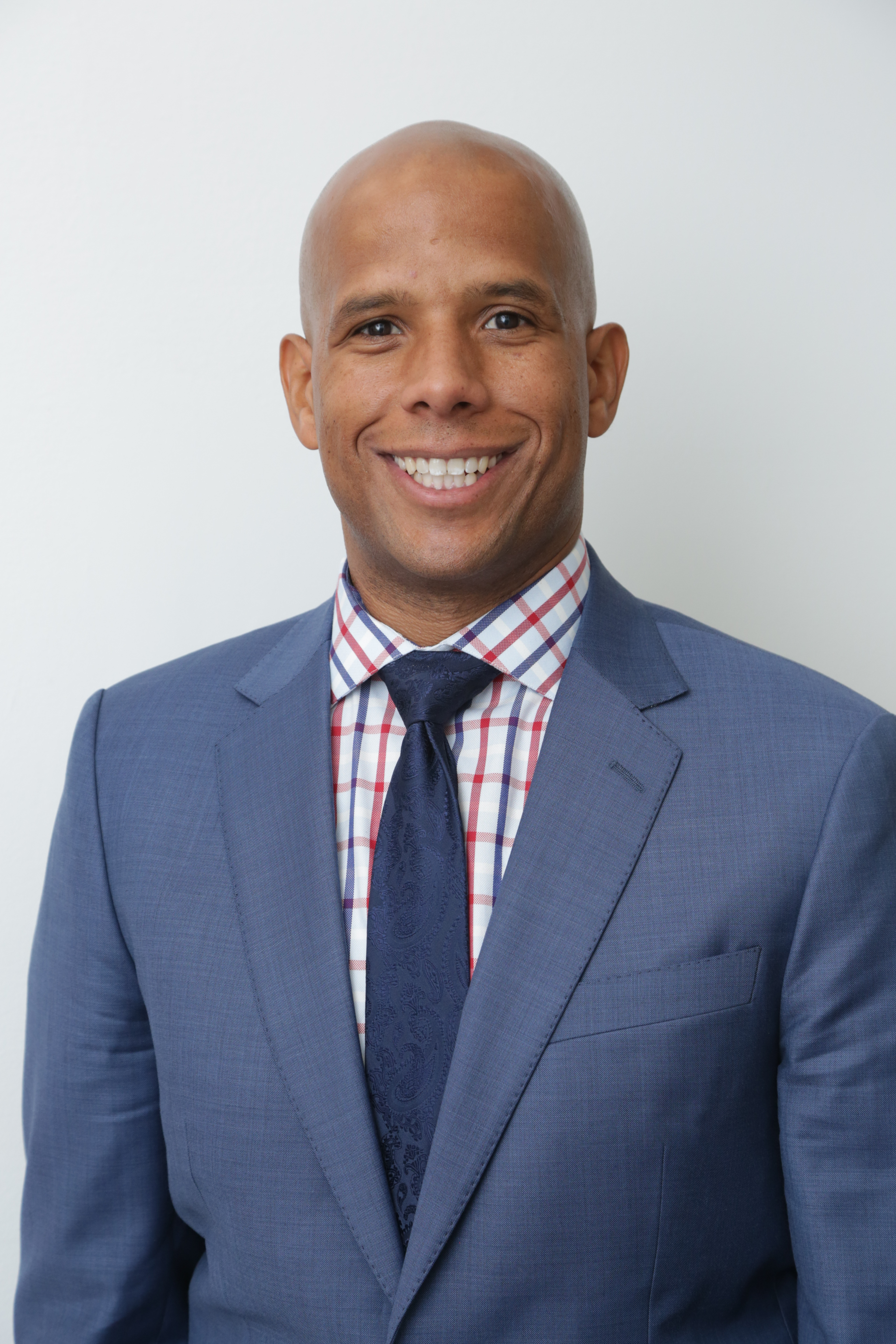
Alden M. Landry, MD, MPH
Immediate Past President
Dr. Landry is an Assistant Professor of Emergency Medicine physician at Beth Israel Deaconess Medical Center, Faculty Assistant Director of the Office for Diversity Inclusion and Community Partnership, Associate Director and Advisor for William B. Castle Society, and Director of Health Equity Education at Harvard Medical School. He also serves as Senior Faculty at the Disparities Solutions Center at Massachusetts General Hospital and is the founder and co-director of the non- profit organization Motivating Pathways. He strives to lead efforts for the Department of Emergency Medicine, the hospital and the medical school that will address health disparities and improve quality of care for the most disenfranchised.
In addition to his clinical interests, Dr. Landry is involved in research on Emergency Department utilization trends, disparities in care and quality of care. He also co-instructs a course at the Harvard T.H. Chan School of Public Health and teaches cultural competency to residents and physicians. Dr. Landry promotes careers in the health professions to under-represented minorities and mentors, scores of pre-medical students, medical students, residents, fellows and junior faculty. Dr. Landry also leads the Tour for Diversity in Medicine, (www.tour4diversity.org) an effort to increase the number of underrepresented minorities in medicine, dentistry, and other biomedical careers.
Dr. Landry has been recognized by his peers and colleagues as a leader in health equity and social justice. He has received numerous awards for his public health work and efforts to promote health care workforce diversity. He was recently awarded the Outstanding Academician Award by the Academy for Diversity and Inclusion in Emergency Medicine of the Society of Academic Emergency medicine and the Albert Frechette Award from the Massachusetts Public Health Association.
Dr. Landry received his Bachelor of Science degree from Prairie View A&M University in 2002 and his medical degree from the University of Alabama in 2006. He completed his residency in Emergency Medicine at the Beth Israel Deaconess Medical Center in 2009. In 2010, he earned a Master’s in Public Health degree from the Harvard T.H. Chan School of Public Health and completed the Commonwealth Fund Fellowship in Minority Health Policy at Harvard University. He received the Disparities Solutions Center/Aetna Fellow in Health Disparities award in 2010-2011.
-
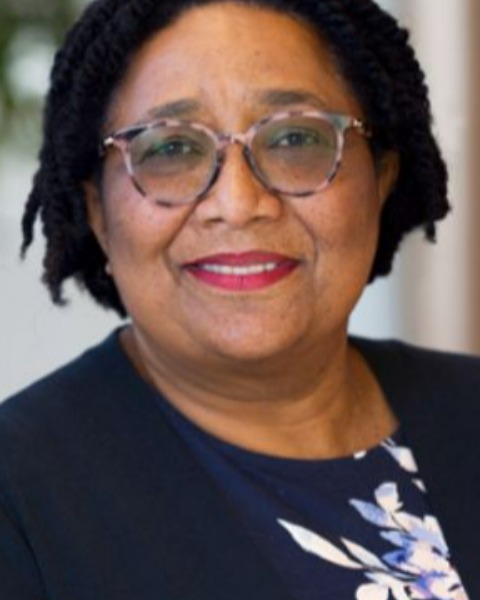
Marcia A. Perry, MD
University of Michigan
Dr. Marcia Perry is an Associate Professor and Associate Chair for Diversity, Equity, and Inclusion in the Department of Emergency Medicine. She completed her Emergency Medicine training at the University of Michigan and stayed on as faculty. She is a former Assistant Program Director for the Emergency Medicine Residency Program and provides clinical care and teaching at the University of Michigan Health System.
Dr. Perry is the Director of House Officer Programs, the Director of the Health Equity Visiting Clerkship, and the Director of the Health Equity and Quality Scholars Program in the Office for Health Equity and Inclusion at Michigan Medicine.
Dr. Perry describes her career in Emergency Medicine as a mission to serve with compassion, grace, and humility. She strives to do this through the lens of equity and social Justice. In medical education she developed two healthcare disparities curriculums that empower house officer to self- reflect, self-critique and hold their institution accountable for equitable care for all. In the clinical and research domains she strives to identify opportunities to improve healthcare equity for all. -
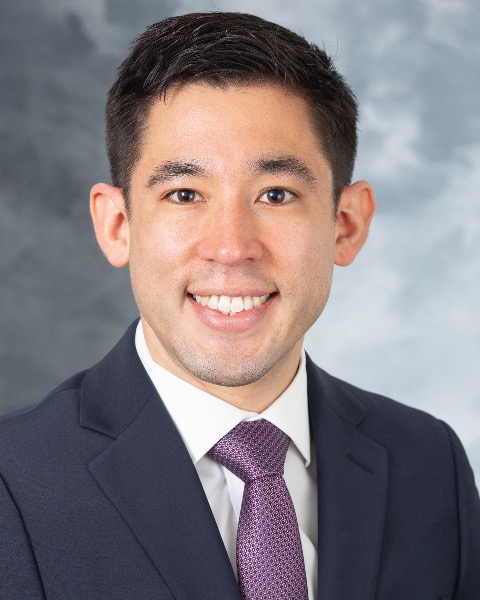
Ryan E. Tsuchida
University of Wisconsin
Dr. Ryan Tsuchida is an Assistant Professor of Emergency Medicine at the University of Wisconsin-Madison and the Assistant Dean for Multicultural Affairs for Health Professions Learners at UW School of Medicine and Public Health. Dr. Tsuchida has a long-standing commitment to diversity, equity, and inclusion initiatives. While attending medical school at the University of Michigan, he founded the Transgender M4 elective and created a student-run faculty development seminar on LGBTQ+ Health. While in residency, he organized and participated in several institutional and departmental programs including acting as lead house officer liaison for a multi-site ACGME collaborative on health care disparities and quality improvement. Within the department, he has participated in the residency’s holistic review process for residency applications, been a member of the program director search committee, and published a commentary on the RAND blog on the importance of health system workforce diversity. Now as faculty, Dr. Tsuchida chairs the department's EDI committee and is involved in institutional URiM mentorship programs. Dr. Tsuchida is the inagural and former chair of the Equity and Inclusion Data and Metrics subcommittee (2020-22), the current SAEM ADIEM membership committee, and was elected by the ADIEM members to be the 2024-25 Secretary-Treasurer. Through his various committee works, he has presented didactics at the SAEM 2021-24 annual meetings on resident-driven recruitment and retention of underrepresented minority medical students and has been an unconscious bias workshop facilitator for SAEM committee and academy chairs. His work has been recognized by the University of Michigan Medical School’s award for Excellence in Institutional Change To Promote Health Equity, SAEM’s ADIEM Future Outstanding Academician Award, and the University of Wisconsin, Department of Emergency Medicine Faculty Award for Excellence in Leadership and Service.
-
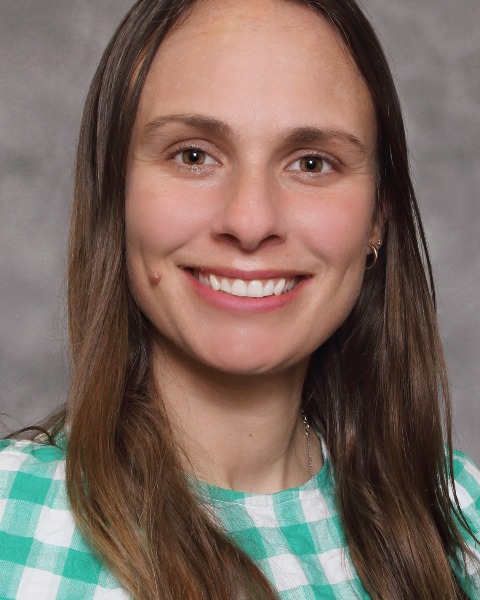
Lizzie M. Hovis, MD
Medical College of Wisconsin
Elizabeth "Lizzie" Maxwell Hovis is an Assistant Professor of Psychiatry and Emergency Medicine at the Medical College of Wisconsin. She completed medical school at the University of Wisconsin School of Medicine and Public Health and residency training in General Adult Psychiatry at the University of Pittsburgh Medical Center. Following residency she completed a fellowship in Consultation-Liaison Psychiatry at the Medical College of Wisconsin. Her academic interests include perinatal substance use as well as identifying and mitigating bias and stigma to improve whole person care of psychiatric patients.
-
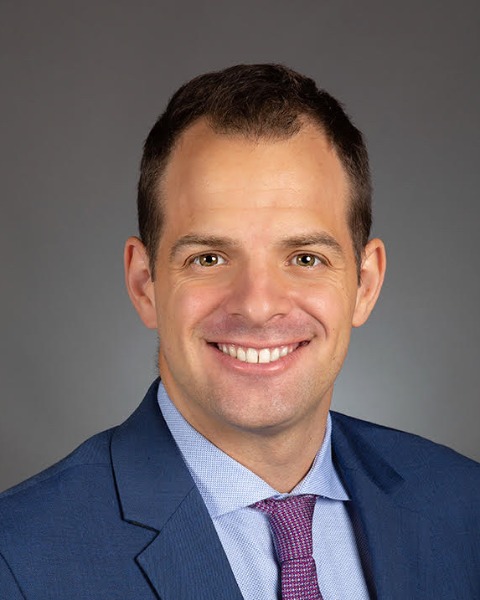
Richard W. Sapp, MD, MS
HAEMR - MGB (MGH/Brigham)
Richard Sapp is a third year emergency medicine resident at the Harvard Affiliated Emergency Medicine Residency (MGH/BWH). He attended Stanford University for his BS and MS in Biology (Neuroscience) and his MD degree. His is passionate about disability advocacy and medical education. He has created multiple courses for undergraduates and medical students on disability care including "Diverse Perspectives on Disabilities" and "Caring for Patients with Disabilities". His current research interests include evaluating EM residents on their preparedness to care for patients with disabilities, creating curriculum on disability health for GME/CME, and on disability health equity in the emergency department and hospiital.
